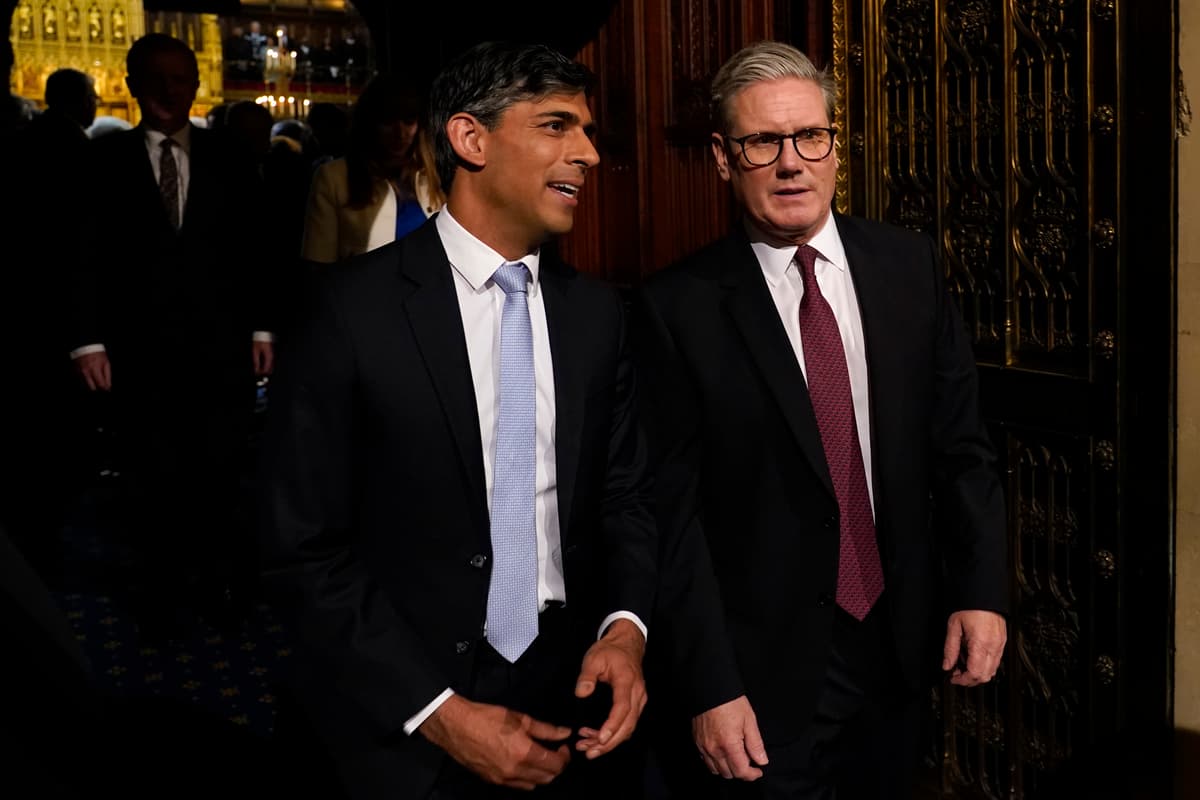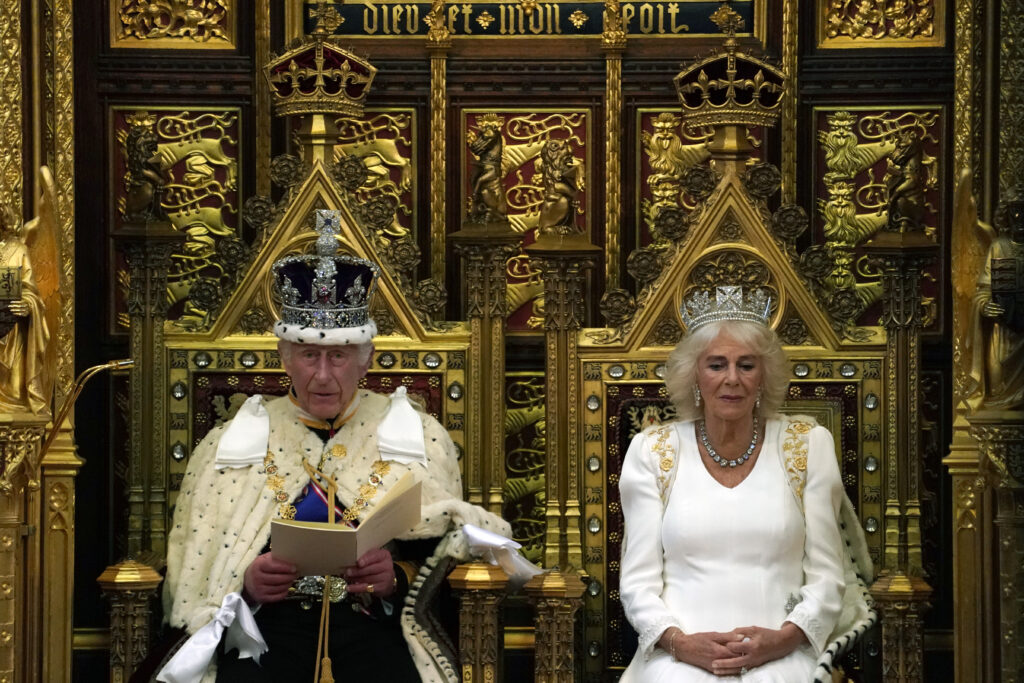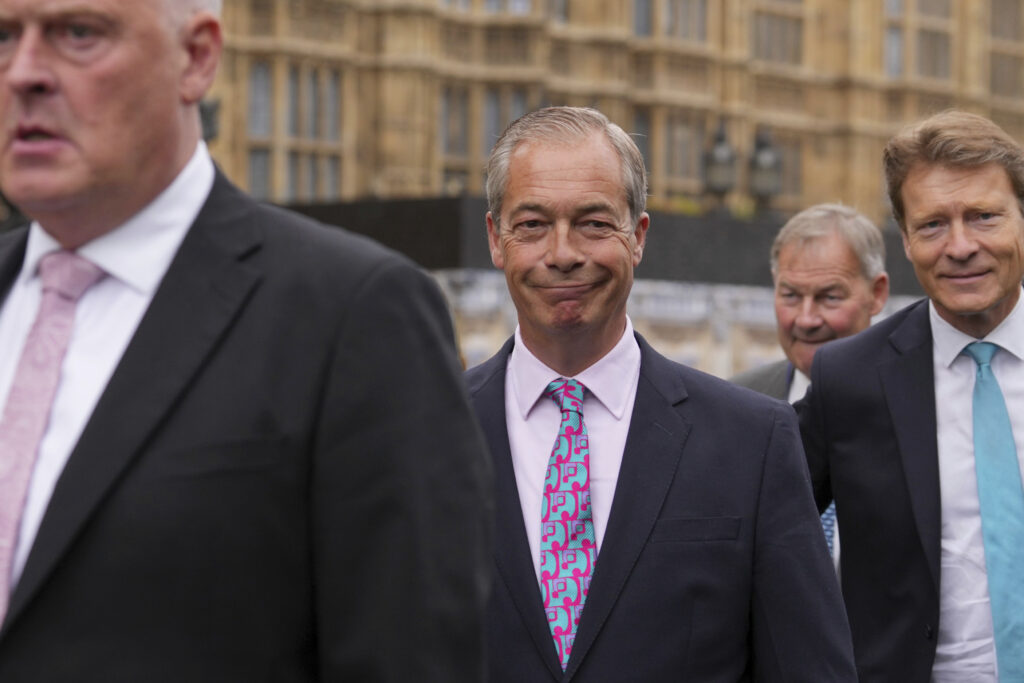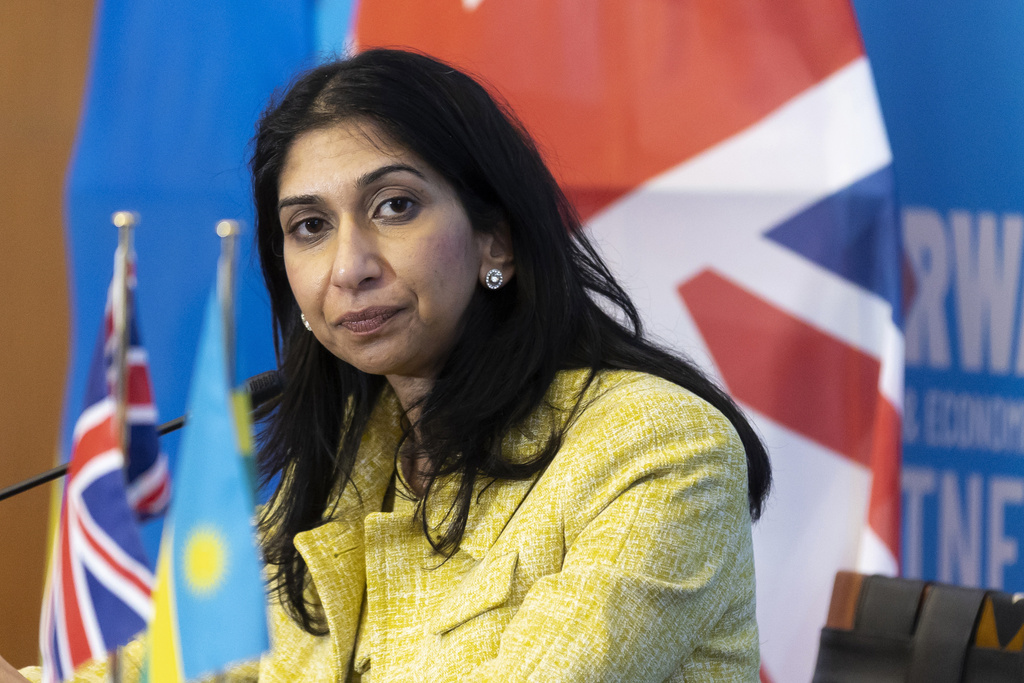Britain’s Best Bet, With the ‘Collectivist Direction’ of Recent Governments, Is a Defiant Brexit Bloc
Nigel Farage’s Reform UK party appears to be in a position to benefit from the Conservative disarray.

Few surprises were on offer at the King’s Speech presented in the House of Lords Wednesday, in which Charles III read out the agenda of his Labour-led government. Highlights of Prime Minister Starmer’s plans include re-nationalizing the railways, establishing a state-sponsored energy corporation, tackling the housing crisis through planning reform, plus raising taxes on the petroleum industry and private education to fund further intervention.
An unexpected feature of the Labour program is the recycling of legislation from the preceding Conservative ministry of Rishi Sunak. Counted among them are smoking bans and energy drink restrictions on young adults. “Nanny State” impulses, it turns out, are bipartisan.
“No change of direction,” is Lord David Frost’s withering review for the Telegraph. Instead, he decries the Labour Government’s plan “to continue transforming Britain into a big government, low-growth, low-energy corporatist state.”
Aye, that’s the rub, isn’t it? This is the dispiriting scene after 14 years of Conservative rule in Britain. Moreover, the peer has grounds to be frustrated. In late 2021 he resigned as an advisor to Boris Johnson, in reaction to the then-premier’s betrayal of the Brexit promise. As Lord Frost attests, “I have constantly criticized the collectivist direction of travel of the last government, too.”

On that score, it remains to be seen what approach HM’s Official Opposition of remaining Conservative MPs will take in holding the Labour ministry to account. Nigel Farage and his Reform UK cohort have a free hand to scrutinize government policy, if they choose to play what cards they’ve been dealt to best effect.
As Lord Frost has no doubt noticed to his chagrin, this same theme is resurfacing in respect of the looming Conservative leadership contest, expected in early Autumn.
While arguments are voiced to tack right and so regain support lost to Reform, counter-arguments are in the ascendant to hew to the consensual center — and a “safe” harbor among conventional centrist views.
At present, polling of the party membership leans toward this latter viewpoint. From the right, leading contenders Kemi Badenoch and Robert Jenrick are firmly against seeking a rapprochement with Reform.

Meanwhile, from the left of the Conservative Party — what is known as the “One Nation” contingent — members are favoring Tom Tugendhat. This cohort is positively hostile to the Reform agenda.
Suella Braverman is possibly the sole leadership contender openly sympathetic to Mr. Farage. For her perfidy, reports abound that she is being sidelined by the Tory rump in Parliament.
With MPs eventually choosing two of their colleagues to be presented to a vote by the membership, the bet is that Ms. Braverman will be shut out — which leads to further rumors that she will ultimately defect to Reform. Were this to occur, would other disaffected Tory MPs follow?
That’s one of the dilemmas at the heart of the contemporary Conservative Party. How many of the rank-and-file really want to catch “Reform bathing and walk away with their clothes,” to paraphrase Benjamin Disraeli? Particularly on issues of abolishing the House of Lords and proportional representation.

In the short term, the Conservative Party may have to be more “wet” than many true Brexiteers would wish. Therefore the answer is not to “capture” Reform, if for no other reason than that little appetite exists amongst either group for such a merger. And who is to say, in the end, who would capture whom?
More importantly, it is by no means clear that any coalition would work. Witness the Conservative chaos, between Leavers and Remainers, when Theresa May was prime minister. Equally, Reform supporters would rebel against any perceived “stitch-up” with a Tory party they vociferously voted against at the general election. If the two parties are to come together it must be done over time.
However, on issues of common cause, such as reducing overall immigration, taxes, regulation, and bureaucratic diktat, it would be electoral suicide not to co-operate. So some agreement looks logical with Mr. Farage to form a “Brexit bloc,” allowing each party of the right to pursue its own path, give its members their own sense of identity and political purpose, yet coming together in defense of mutual conservative causes.
After all, aren’t the principles of individual effort, decentralization, and “mutual aid” at the heart of the conservative programme? As the Labour Government follows the footsteps of recent Conservative administrations toward an interventionist state — but without any pretense at restraint, and with additional fears of overtures toward the European Union — then the only “right” response has to be a defiant Brexit bloc.

